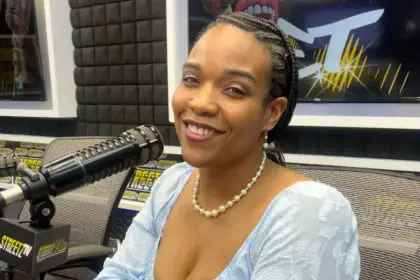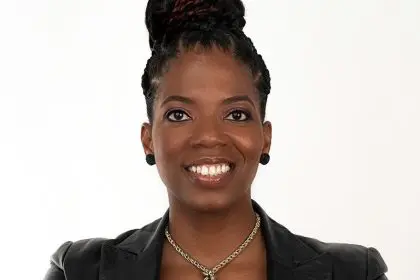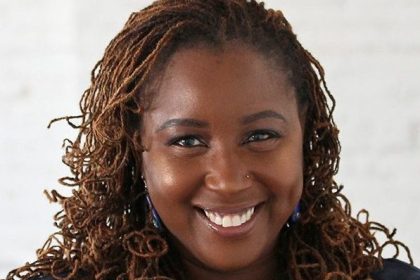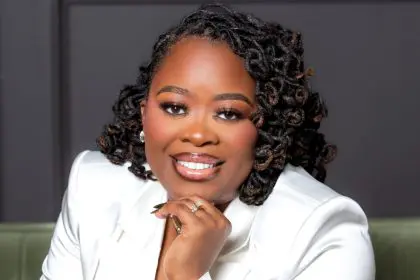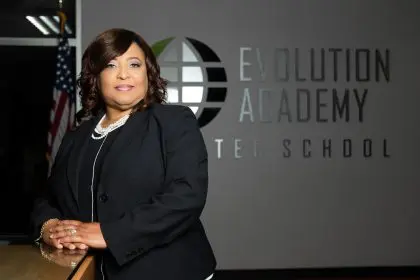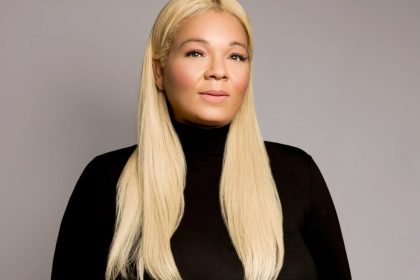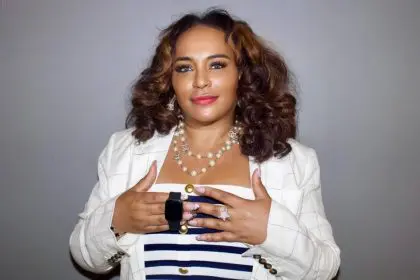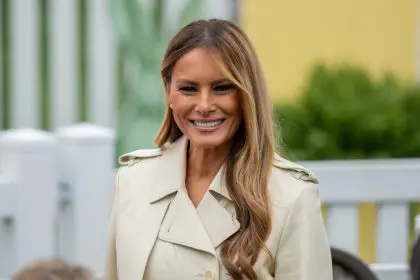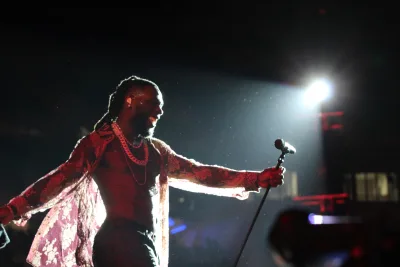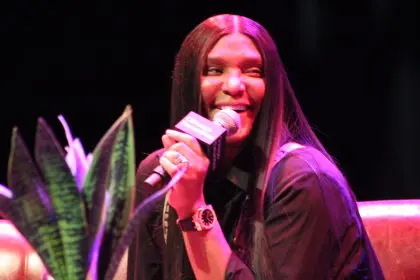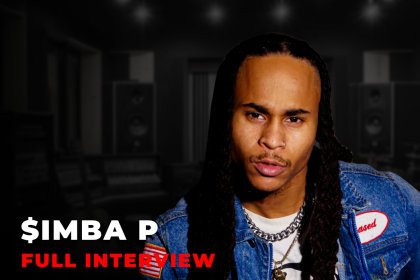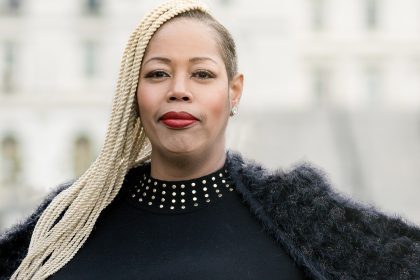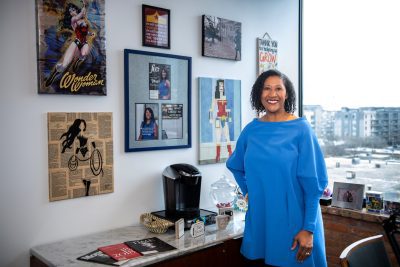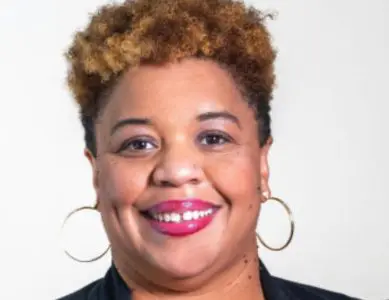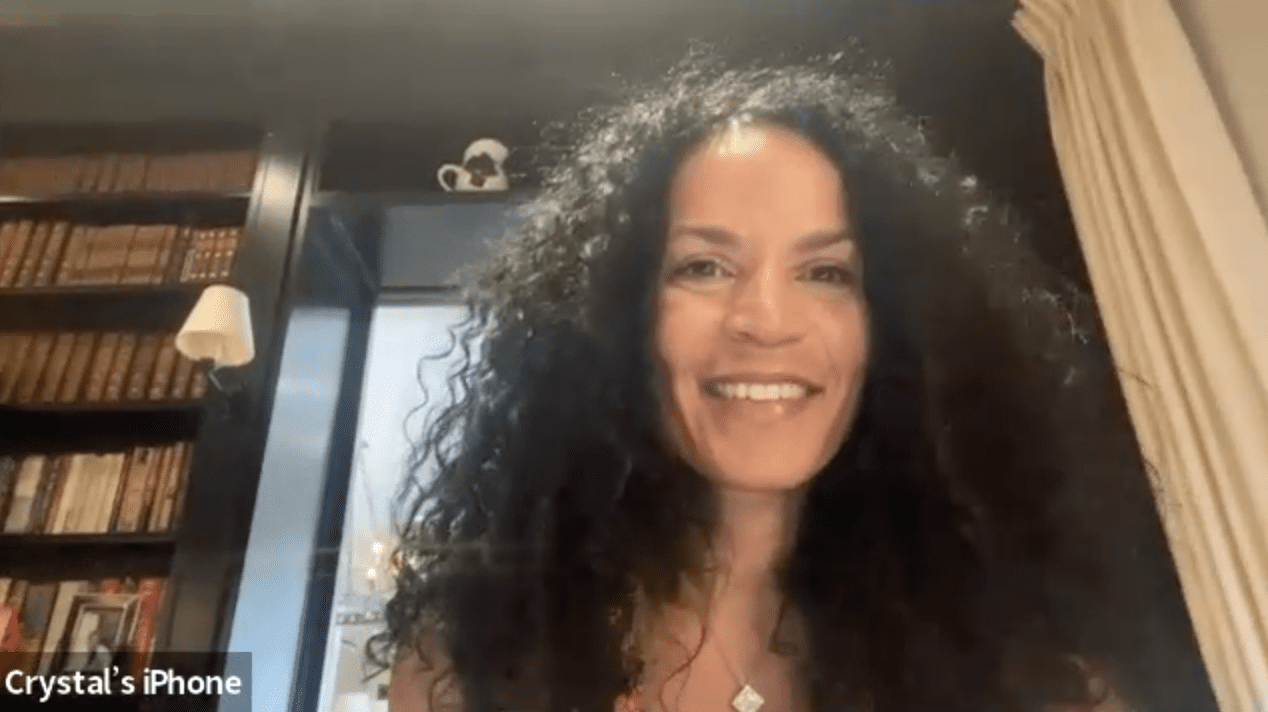
Keeping her philanthropic expertise at the forefront, Crystal McCrary McGuire is a true sister with superpowers who is making a major impact in the world. As an award-winning filmmaker and New York Times bestselling author, she is telling the stories of the likes of women such as Michelle Obama and Venus Williams in her book INSPIRATION: Profiles of Black Women Changing the World, and giving young Black girls a chance to see themselves in the light of greatness and endless possibilities.
On the sports side, she’s helping young athletes by teaching them about financial literacy and assisting families with the 50 Ways Foundation. Through all that McGuire does, her goal is to uplift everyone who follows her story.
What would you say to young wmen who are trying to navigate life?
The most important thing is kindness. Select somebody who is a kind human being and then I would say integrity. Kindness will get you through a lot and a sense of humor. In terms of those who are in an industry, or wanting to get into an industry that may not be welcoming, or may not accept them, or maybe they’re making a pivot from another profession, one thing that I have had to teach myself from when I first decided I was going to leave my law firm many years ago when I was in my 20s, was I wanted to be the client rather than the lawyer. I was practicing entertainment law at this big firm in New York City, and I said I wanted to write. That was what my dream was, and I began teaching myself by signing up for seminars, reading books on publishing, and reading books on how to write a book. I was an English major, but I decided to sit down and do it myself, and the biggest bit of advice on that as you’re sitting down and writing a book, or creating a new business, it can be a lonely endeavor, as you’re ideating and taking it from its embryonic stage to birth, so you have to be your own number one fan. You have to be the biggest cheerleader of your project and believe in it.
What is the value of having a skill set and a specialty that society needs versus just doing something?
In my case, becoming a lawyer was rooted in my parents saying, “You need to get yourself an education.” It was a different era than young folks coming up today. You have young folks coming into jobs nowadays who after six months are like “I want to be president of the company.” I love that ambition, however, you have to be proactive. I knew fairly quickly that I didn’t want to practice law, and I left and started writing books. I then started producing TV and film, and that’s a big part of what I’m into now which is film, production, directing, and writing. Being a lawyer for many of my early projects, whether it was having a publishing agreement that I needed to review. I never represented myself, but I used my legal background. The first film that I sold, which was an independent film called Dirty Laundry, was sold by this gentleman who was a lawyer at the law firm I worked at. He had left also, and started a film sales company. Not only foundationally did I make relationships in the entertainment legal world, but I also learned to be able to read contracts and know if something shouldn’t be in there or should be in there. I knew what to look for.
Why is it important to have a mentor or sponsor?
That’s something I wish I knew, even more, the importance of having a mentor and having a sponsor. There’s a difference between the two, but that’s important because we stand on the shoulders of those who have come before us in our industries, and we need to learn to reach back and ask for their advice and ask for them to share what were their pitfalls in trying to get to where we’re trying to get to. That is something that I wish I understood earlier in my career, and now I have tried to do that a lot for young women and young men, particularly in the publishing world and in the filmmaking world. I have mentored a lot of young folks, but it’s become a situation now where I look to them, and it’s reverse mentorship. It’s become cyclical in that way, where they have helped me in this current industry of filmmaking, television, and the tech world.
What inspired you to write your book?
The book came about because of this doc-series that I created, called “Leading Women,” where we profiled Black women. We have one for men, too, called “Leading Women and Leading Men,” where we profiled Black men and Black women who’ve impacted the country socially, politically, culturally, and artistically. The idea of the book was a continuation of that television series. There were some women that I wanted to be able to profile on the television show that didn’t quite have the Q rating that the network heads would approve to do a TV show on because they’re like, “Who’s the audience going to really be?” I wanted to have a spectrum of Black women that we profiled, so some of the women that we couldn’t say get approval to show on the television series, I was able to include in the book.
In terms of what I want young women to get out of the book, I want [them] to understand that each of them within holds their own superpower and tap into that. That is what I wanted to show the women and I wanted them to see the sense of what is possible, that we are not the stereotypes that we have historically seen in media representations of us, and there is a range of black women who can do everything.
How important is it to understand money early in life?
I think that it’s something that we don’t talk enough about, and we don’t have enough education around, particularly financial literacy in our communities. I think it should be starting much earlier. I think that kids should be studying and understanding finances and the economy in an age-appropriate way as young as first or second grade. We as a people have historically been concerned about social justice, but when you look at the work that Dr. Martin Luther King was doing before his assassination, he was doing work around economic justice. When he was doing work around the Poor People’s Campaign, if you remember this great quote, he made, forgive me if I don’t say it exactly how the late great Dr. King said it, but he said, “What good would it do me if I can sit at this lunch counter, but I cannot afford to buy a hamburger?” Social justice and economic justice in my view go hand in hand.
What it’s like for a mother and son to have a business together?
It’s quite gratifying for several reasons. One, I love being able to spend time with my son, especially since he doesn’t live at home anymore. It gives us another point of commonality. It gives us something to work on together in the space of basketball, which we are both very passionate about. We also are very deeply involved with youth sports and children. He’s such a good big brother, and he has his foundation as well, the 50 Ways Foundation, that helps youth basketball players on and off the court. It also gave us an opportunity to think about ways that we could help eliminate the financial barriers for families who do want to enroll their kids in basketball developmental programs or have their kids play on these travel teams, but there are economic barriers with the travel cost or the uniform. There are so many costs now associated with youth sports, and we started the 50 Ways Game Up scholarship fund for the families who go and get matched with teams and programs on our platform that can’t afford to pay the fees associated with it, and we will pay those fees for those families.
Why is it important that families get professional and insightful consultation in that journey?
You don’t want them relying on their homeboy Junebug to be doing their financial planning, which we’ve seen unfortunately. It’s a matter of doing one’s due diligence, getting lots of references, and making sure that whatever financial institution they end up banking with or using for investments, or whether it’s diversifying their assets through art collection, that they are in business with well-vetted reputable individuals or entities. Sometimes that requires a lot of research, but this is the money that these young entertainers and athletes have worked really hard to get. Particularly as it relates to athletes, they have a short lifespan of time to make these large amounts of money, so the idea is to save and make wise decisions while you’re making this large amount of money. So if you retire at 30 or 35 if you’re lucky and you don’t have any injuries, that money could last you the rest of your life, that money is working for you, and those investments are working for you.
What are three things you would challenge others to do for our community?
Have a philanthropic spirit. I was raised, my husband was raised, and my children have been raised to whom much has been given much as expected, and within that, we must have a philanthropic spirit. That also ties into the grace of God “There Go I” and within that statement, also ties into philanthropy and giving back. The privilege of breathing and being on this earth to be empathetic to others to our brothers and sisters, is truly how I try to live and how I tried to teach my children to live. This is going to be hyphenated but work hard: hustle, work ethic, and be proactive. All of this goes into the work hard. Be disciplined. When you start a project or a task, finish it, don’t be a dabbler.

